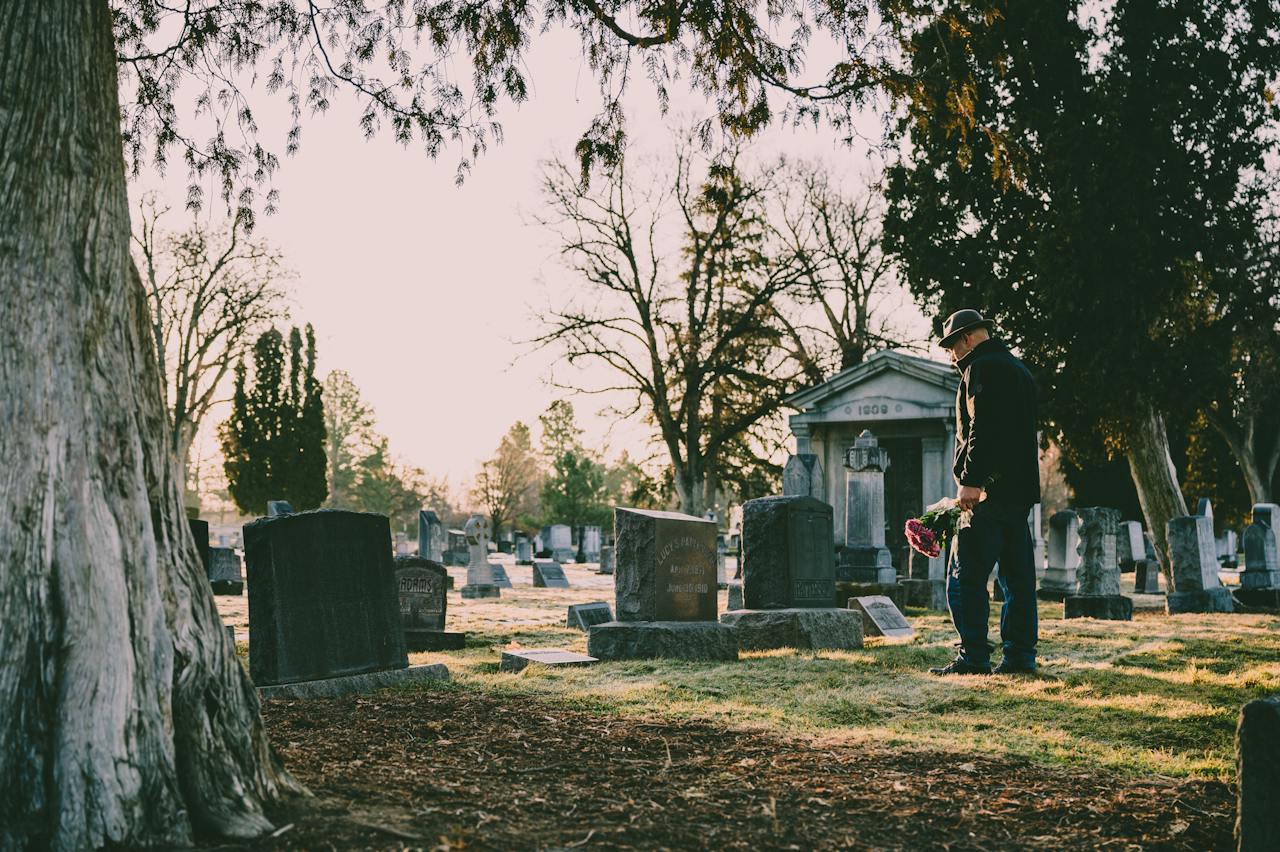What Happens To Our Soul After We Die?
The fate of our soul, that intangible essence of our being, remains a profound mystery. Many cultures and religions offer diverse beliefs about what happens to our soul after we die.
Author:Georgia AshcroftReviewer:Ava MartinezDec 19, 202316.2K Shares238.7K Views

The question ofwhat happens to our soul after we diehas perplexed humanity for centuries. In various cultures and belief systems, there are diverse perspectives on the afterlife, ranging from reincarnation to an eternal resting place.
In this exploration, we will delve into the different philosophical, religious, and scientific viewpoints to gain a comprehensive understanding of the fate of the soul beyond death.
Philosophical Perspectives On The Afterlife
Philosophers throughout history have grappled with the concept of the afterlife, offering diverse perspectives that reflect their cultural and intellectual backgrounds. Some posit that the soul continues its journey in another realm, while others argue for the finality of death.
Existentialist thinkers, such as Jean-Paul Sartre, emphasize the idea that death marks the absolute end of consciousness, leaving nothing beyond the cessation of life. This perspective challenges traditional notions of an afterlife and prompts individuals to find meaning within the finite nature of existence.
What Happens To Your Soul When You Die In The Bible?
Many Christiansbelieve the soul lives on after death. The Bible says. In Genesis 2:7, the Bible reads, "And the LORD God formed man of the dust of the ground, and breathed into his nostrils the breath of life; and man became a living soul" (KJV).
Another version is, " and man became a living being" (NKJV; NIV). God didn't give man a soul. He fashioned the body from dust, then breathed His life-giving spirit into it, creating a soul.
The opposite happens when someone dies. No soul remains once the body loses its breath. The Bible says so. "The dust returns to the ground it came from, and the spirit returns to God who gave it" (Ecclesiastes 12:7, NIV). God reunites the body with His life-giving spirit at the resurrection, reviving the individual.
We would be eternal if spirits lingered on after death. However, the Bible denies human immortality. Only God is eternal (1 Timothy 6:15, 16). Romans 2:7 states the virtuous "seek for glory, honor, and immortality." Why would the righteous want what they already had if we possessed everlasting souls?
Different Religious Views On The Afterlife
Christian Views
Christianity offers a nuanced understanding of the afterlife, emphasizing the concepts of heaven, hell, and divine judgment. Believers anticipate a heavenly reward for a virtuous life, contrasting with the eternal consequences of hell for those who reject divine guidance.
The question of "what happens to our soul after we die" holds particular significance in Christian theology, shaping moral conduct and spiritual beliefs.
Hinduism And Reincarnation
In Hinduism, the afterlife is intricately linked with the cycle of reincarnation. The soul, or atman, undergoes multiple rebirths, influenced by karma—the consequences of one's actions.
The pursuit of moksha, liberation from this cycle, is central to the Hindu worldview. Understanding Hindu perspectives on the afterlife involves delving into the interconnected notions of karma, dharma, and the eternal journey of the soul.
Buddhist Notions
Buddhism introduces a unique perspective on the afterlife, emphasizing the cycle of samsara and the quest for enlightenment. The soul, or consciousness, is seen as transitory, moving through various states of existence. Breaking free from the cycle of rebirth, achieving nirvana becomes the ultimate goal.
The Buddhist exploration of "what happens to our soul after we die" intertwines with the pursuit of wisdom, compassion, and the cessation of suffering.
Islamic Teachings
Islam provides a comprehensive account of the afterlife, incorporating the Day of Judgment and the reckoning of deeds. Believers anticipate entry into paradise, characterized by eternal bliss or the possibility of facing the consequences in hell.
The question of "what happens to our soul after we die" is central to Islamic teachings, influencing the moral conduct of adherents and shaping their understanding of the divine plan.
Judaism
In Judaism, the afterlife is less emphasized compared to other Abrahamic religions. The concept of Olam Ha-Ba, the World to Come, suggests a future, messianic era rather than a specific destination for individual souls.
The emphasis is on righteous living and the fulfillment of mitzvot, or commandments, rather than a detailed account of the afterlife. Exploring Jewish perspectives provides insight into a nuanced approach that focuses on earthly actions.
Sikhism
Sikhism, a relatively newer religion, incorporates elements of Hindu and Islamic thought. The afterlife is viewed as a continuation of the soul's journey, ultimately seeking union with the divine.
The concept of Mukti, akin to liberation, is central, emphasizing the soul's evolution toward a state of eternal connection with the divine. The question of "what happens to our soul after we die" in Sikhism intertwines with the pursuit of spiritual enlightenment and service to humanity.
Shinto Beliefs
Shinto, the indigenous spiritualityof Japan, needs to delineate a clear afterlife concept. However, it involves a deep connection with kami, spiritual beings, and a reverence for ancestral spirits.
Shinto rituals and practices focus on maintaining harmony with these spiritual entities. Understanding the Shinto perspective on the afterlife involves exploring the intricate relationship between the living, the dead, and the spiritual realms.
Bahá'í Faith
The Bahá'í Faith emphasizes the unity of all religions and the idea of progressive revelation. While it does not prescribe specific details about the afterlife, it acknowledges the eternal nature of the soul and the concept of spiritual progression.
The question of "what happens to our soul after we die" in Bahá'í teachings is intertwined with the broader theme of unity, justice, and the continuous unfoldment of divine guidance.
Heaven, Hell, And Purgatory - Christian Dimensions Of The Afterlife
Within the Christian faith, the concept of the afterlife is intricately woven with the notions of heaven, hell, and purgatory, each representing different facets of the soul's journey beyond earthly existence.
Heaven
In Christian theology, heaven is often portrayed as a realm of ultimate joy and communion with the divine. It is the destination for those who have lived virtuously and accepted the teachings of their faith.
Descriptions of heaven include images of eternal peace, worship, and a reunion with loved ones. The belief in heaven provides comfort and serves as a powerful motivator for leading a righteous life.
Hell
Conversely, hell represents a realm of eternal suffering for those who reject the divine teachings or live in defiance of moral principles. It is a place of punishment where the soul faces the consequences of a life lived in sin.
The vivid descriptions of hell in Christian tradition often serve as a cautionary narrative, emphasizing the moral consequences of one's choices during their earthly existence.
Purgatory
In certain Christian denominations, particularly within Catholicism, purgatory is introduced as an intermediate state where souls undergo purification before entering heaven. Purgatory is not a place of permanent damnation but rather a space for the cleansing of sins.
The duration of one's stay in purgatory is believed to be finite, and it is a testament to the merciful nature of God, allowing souls the opportunity for redemption and eventual entry into heavenly bliss.
Judgment Day
Central to Christian dimensions of the afterlife is the concept of Judgment Day. According to Christian teachings, all souls will face a divine judgment where their deeds and faith will be evaluated.
This judgment determines whether the soul will be destined for eternal bliss in heaven, face the consequences of hell, or undergo purification in purgatory.
Theological Variances And Interpretations
It's essential to note that interpretations of the afterlife within Christianity can vary among denominations.
While some emphasize the literal nature of heaven and hell, others may interpret these concepts more metaphorically. The belief in an afterlife shapes Christian morality, guiding adherents to live in accordance with the teachings of their faith.
The Comfort And Challenge Of Christian Afterlife Beliefs
Christian dimensions of the afterlife provide both comfort and challenge. The hope of attaining eternal joy in heaven serves as a source of solace and inspiration.
At the same time, the fear of the consequences of hell underscores the moral gravity of individual choices. Purgatory, with its emphasis on purification, reflects the Christian belief in divine mercy and the transformative power of repentance.
Near-death experiences (NDEs) are profound psychological events that typically occur to individuals who are close to death or in situations of intense physical or emotional danger. The nature and interpretation of these experiences can vary widely, but they often include certain common elements:
- Out-of-Body Experiences (OBEs) -Individuals often report feeling as though they have left their physical body and can observe themselves and their surroundings from an external perspective.
- Intense Emotions: -These can range from feelings of peace and bliss to terror and anguish.
- Passing Through a Tunnel -Many describe the sensation of moving through a dark tunnel toward a source of light.
- Encountering a Light -This light is often described as exceptionally bright and is associated with feelings of warmth and love. Some individuals report feeling as though they are being drawn towards the light.
- Encountering Beings -These can include deceased loved ones, religious figures, or other mystical entities. Interactions can be comforting or unsettling, depending on the nature of the experience.
- Life Review: -Some report a rapid, panoramic review of their life or significant life events.
- A Decision or a Boundary -Individuals may feel they have a choice to return to life or cross over into death, or they may encounter a barrier or boundary that prevents them from moving any further.
- Return to the Body -The experience typically ends with the individual returning to their physical body.
The causes and interpretations of NDEs are varied and complex. From a scientific perspective, explanations have ranged from physiological (such as lack of oxygen to the brain, the release of endorphins, or other neurochemical responses to trauma) to psychological (such as defense mechanisms or the brain's response to stress).
However, these explanations often fall short of fully accounting for the subjective experiences reported by those who have had NDEs.
From a spiritual or religious perspective, NDEs are sometimes viewed as evidence of an afterlife or another form of spiritual reality. These interpretations are deeply personal and can be influenced by an individual's cultural, religious, and personal beliefs.
Research into NDEs continues to be an area of interest in both the medical and psychological fields, as well as in the study of consciousness and spirituality. Despite the advances in understanding the human brain and consciousness, NDEs remain a largely mysterious phenomenon that straddles the line between the known and the unknown, the scientific and the spiritual.
The Mystery Surrounding The Soul's Reincarnation
The concept of the soul's reincarnation has fascinated and perplexed humanity for centuries, weaving a tapestry of beliefs that transcend cultural, religious, and philosophical boundaries.
In exploring this enigmatic phenomenon, we delve into the mysteries surrounding the cyclical journey of the soul, where life begets life in a perpetual dance of existence.
Reincarnation Across Cultures And Religions
Reincarnation is not confined to a single cultural or religious tradition; instead, it spans a diverse range of beliefs worldwide. From the ancient teachings of Hinduism and Buddhism to lesser-known traditions, the idea of the soul's rebirth is woven into the fabric of diverse societies.
Each culture brings its unique nuances to the concept, shaping the narrative of the soul's cyclical passage through different lifetimes.
The Karmic Tapestry Of Past Actions
Central to many reincarnation beliefs is the notion of karma, the cosmic law of cause and effect. The soul, it is believed, carries the imprints of past actions from one life to the next.
The karmic tapestry woven through successive incarnations becomes a moral compass, influencing the circumstances of each new existence.
The Search For Liberation: Moksha And Nirvana
In Hinduism and Buddhism, the ultimate goal of reincarnation is not perpetual rebirth but liberation. Hindus seek moksha, the release from the cycle of reincarnation, while Buddhists aspire to reach nirvana, a state of liberation from suffering and desire.
The mystery lies in the journey towards this ultimate freedom and the transcendent wisdom attained along the way.
Unearthly Memories And Past-Life Recollections
Numerous accounts suggest that some individuals possess memories of past lives, offering a tantalizing glimpse into the mystery of reincarnation.
These recollections, often vivid and detailed, raise questions about the continuity of consciousness and the potential for the soul to carry memories from one incarnation to the next.
Contemporary Reincarnation Research
In the realm of science, the study of reincarnation often takes a different form. Researchers investigate cases of children who claim to remember past lives, documenting details that align with verified historical events.
While these studies donot provide definitive proof, they contribute to the ongoing mystery of the soul's potential continuity across lifetimes.
Challenges To The Reincarnation Paradigm
Despite its widespread acceptance, the concept of reincarnation faces challenges and skepticism. Critics question the lack of empirical evidence and the potential influence of cultural and societal factors on reported cases.
The mystery deepens as researchers grapple with reconciling anecdotal accounts with the scientific method.
Evolution Of The Soul
In many belief systems, reincarnation is not a random cycle but a purposeful journey of the soul's evolution. Each life is seen as an opportunity for spiritual growth, learning, and self-realization.
The mystery lies in understanding the intricate pathways that guide the soul's progression through the diverse landscapes of human experience.
The Eternal Enigma
The mystery surrounding the soul's reincarnation persists, leaving a multitude of unanswered questions.
What determines the trajectory of the soul from one life to the next? How does the interplay of free will and destiny shape the course of successive incarnations? The allure of these unanswered queries adds to the enduring fascination with the mystery of reincarnation.
FAQs About What Happens To Our Soul After We Die?
From A Scientific Standpoint, What Happens To Consciousness After Death?
Scientifically, the question of what happens to consciousness after death is explored within the field of neuroscience. Some argue that consciousness is tied to the brain, and with brain death, consciousness ceases. Near-death experiences contribute to this exploration, but the topic remains a subject of ongoing research and debate.
Where Does The Soul Go After Death?
In the hereafter, some hope to find a paradise similar to our own. Svarga loka, or heaven, is the term used in Hinduism. There are seven good places for the soul to go after it dies and seven wrong places.
What Lives After Death?
The spirit survives bodily death and travels to a place of its own making. The tremendous Eastern faiths (Hinduism, Buddhism, and Sikhism) also teach that there is something about you that survives the death of your body. Despite this, it stays on Earth. Instead, it leaves that body and seeks for a new host.
What Will Physically Happen To You After You Die?
The body alters when its temperature decreases after death. Skin color and texture change, and muscles relax, stiffen, and relax. This page describes the physical chronology of dying, from death to post-mortem.
What Is The Christian Perspective On The Fate Of The Soul After Death?
In Christianity, the fate of the soul after death is linked to a judgment day. Righteous individuals may enter heaven, while others may face consequences in hell or an intermediate state like purgatory.
Final Thoughts
In contemplating what happens to our soul after we die, we encounter a tapestry of beliefs, philosophies, and experiences that span the breadth of human thought and spirituality. From the existentialist acceptance of death's finality to the intricate cycles of reincarnation and the moral dimensions of heaven and hell in Christian theology, each perspective adds a layer to the complex narrative of the afterlife.
Scientific inquiry, as evidenced by studies on consciousness and near-death experiences, offers a complementary lens that seeks to unravel the mysteries of existence through empirical observation.

Georgia Ashcroft
Author
Georgia Ashcroft is a seasoned astrologer and spiritual practitioner with over 5 years of experience. She holds a Master's degree in Physics from Princeton University, enriching her astrological insights with a deep understanding of scientific principles.
Georgia's published works encompass insightful analyses of astrological phenomena, including zodiac signs and horoscope interpretations, establishing her as an esteemed figure in astrological circles.
Beyond astrology, Georgia is passionate about tarot and regularly incorporates its wisdom into her spiritual practice.

Ava Martinez
Reviewer
Ava Martinez is a highly experienced author specializing in spirituality and tarot. With over 12 years of dedicated practice, Ava brings a wealth of experience and expertise to her writings.
She has dedicated herself to helping individuals gain insight and clarity through spiritual practices and tarot consultations.
Her deep connection to spiritual energies and engaging style make her readings a trusted resource for those seeking guidance and enlightenment.
Apart from her literary world, Ava embraces nature's gifts, explores meditation's depths, and intertwines the mystical essence of spells into her holistic perspective on life's journey.
Latest Articles
Popular Articles




